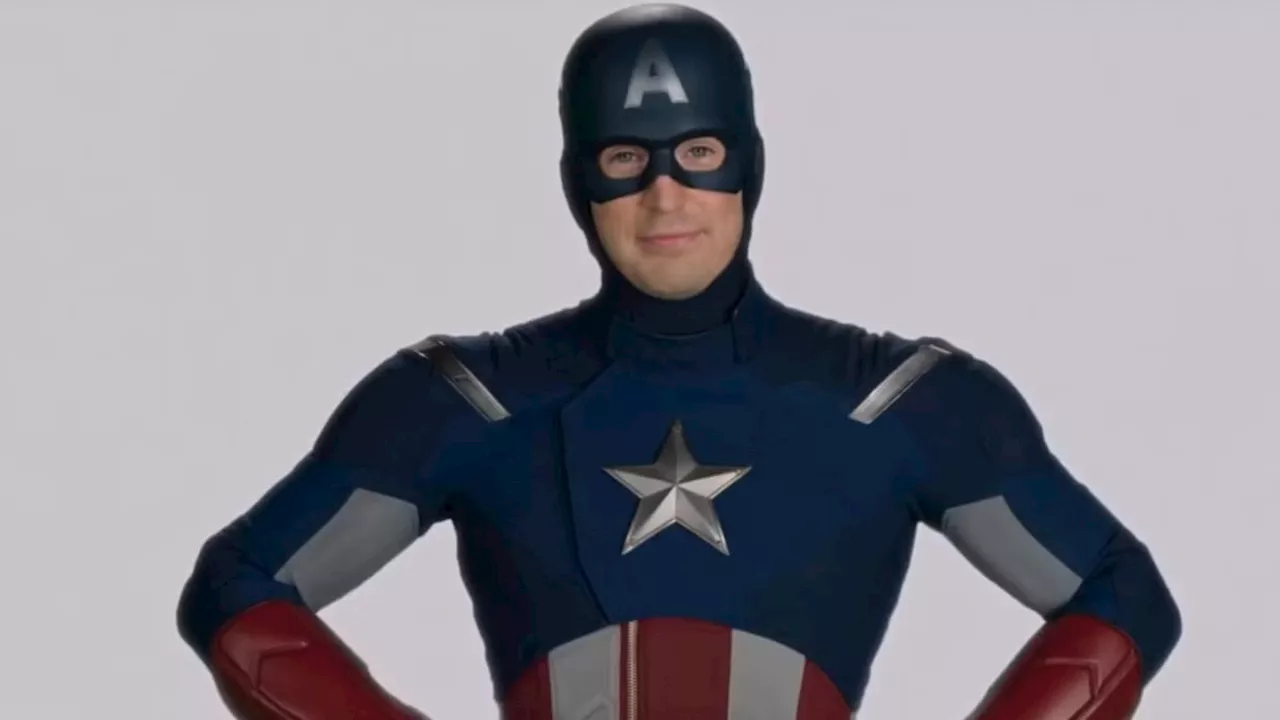Anthony Mackie's recent comments about Captain America's identity sparked debate, but his perspective aligns with Chris Evans' earlier views, highlighting the character's universal values and moral compass as core attributes. This examination explores how Captain America, from his comic book beginnings to the MCU, has always been more than a patriotic symbol, representing a steadfast commitment to justice and integrity.
Anthony Mackie recently sparked controversy by suggesting that being American shouldn't be the defining trait of a hero, emphasizing universal values like honor, dignity, and integrity as the core attributes of the character. This sparked debate, but his stance echoes sentiments expressed by Chris Evans, his predecessor, when he first took on the role of Steve Rogers.
This shared understanding between both MCU iterations of Captain America reflects a deeper truth about the character that has been woven throughout his eight-decade history. From his creation as an anti-fascist symbol to his evolution into a hero whose moral compass often puts him at odds with the very nation whose flag he wears, Captain America has always been more than just a patriotic figure.Evans stated that he wasn't interested in focusing too heavily on the American aspect of the character, explaining that while the character was created in America during wartime, his purpose was to oppose “undeniable evil” rather than promote nationalism. He even suggested that Captain America should simply be called Captain Good. This echoes Mackie's perspective, who sees Captain America as representing universal values rather than a specific nationality. Both actors demonstrate a deep understanding of the character's complexity and his enduring relevance beyond political boundaries.This shared interpretation isn't coincidental. When Joe Simon and Jack Kirby created Captain America in 1940, they were responding to the rise of fascism in Europe, with Simon specifically choosing Adolf Hitler as the character's nemesis before America had even entered World War II. The character's immediate success, selling over a million copies monthly, demonstrated that audiences connected with this mission of opposing tyranny rather than simply celebrating American superiority.Captain America's moral principles have often clashed with government authority, leading to some of his most compelling storylines. During the 1970s, the comics directly engaged with the Watergate scandal through a storyline where Steve Rogers discovered that the leader of a fascistic organization called the Secret Empire was the President of the United States. This crisis of faith led Rogers to temporarily abandon his Captain America identity, becoming “Nomad, the man without a country.” This storyline marked a crucial evolution in the hero's portrayal, demonstrating his steadfast loyalty to moral integrity rather than any official institution.This theme has persisted throughout Captain America's publication history, from his opposition to the Superhuman Registration Act during the “Civil War” arc to numerous confrontations with corrupt officials. These stories consistently show that Captain America's moral compass points toward justice rather than blind patriotism, often placing him in direct opposition to the very government whose flag he wears. By the 1980s, Rogers had even declined an offer to run for president, recognizing that his role sometimes required standing apart from the government.The Marvel Cinematic Universe has masterfully captured this aspect of the character. Evans’ Steve Rogers defied the government inwhen the Sokovia Accords threatened individual freedoms. Similarly, Mackie’s Sam Wilson struggled with what it means to carry the shield in, ultimately choosing to fight for universal justice while acknowledging America’s complicated history. Their shared interpretation – focusing on moral integrity over their country – demonstrates why the passing of the shield from Rogers to Wilson works so perfectly within the narrative.When we look at Evans’ and Mackie’s statements side by side, we see two actors who have deeply considered what makes Captain America genuinely heroic. Their understanding reflects decades of comic book storytelling that has shown Captain America’s greatest strength isn’t his loyalty to any nation but his unwavering commitment to doing what’s right, regardless of political pressure or popular opinion. This interpretation doesn’t diminish the character’s American identity but rather elevates it to represent the highest ideals any country could aspire to achieve, a point that both Evans and Mackie clearly understand and articulate in their respective takes on the role
CAPTAIN AMERICA CHRIS EVANS ANTHONY MACKIE MARVEL CINEMATIC UNIVERSE COMICS HEROISM PATRIOTISM MORAL COMPASS
United States Latest News, United States Headlines
Similar News:You can also read news stories similar to this one that we have collected from other news sources.
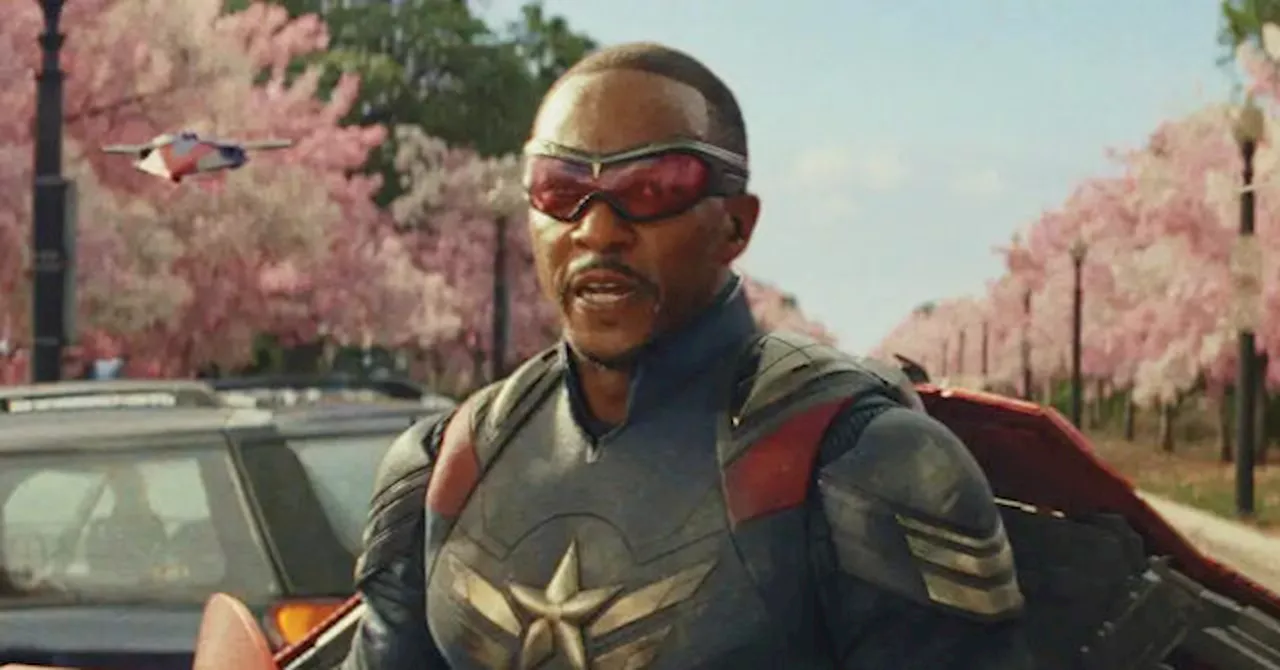 Nolte: ‘Captain America’ Star Tells Europe Captain America Shouldn’t Represent AmericaSource of breaking news and analysis, insightful commentary and original reporting, curated and written specifically for the new generation of independent and conservative thinkers.
Nolte: ‘Captain America’ Star Tells Europe Captain America Shouldn’t Represent AmericaSource of breaking news and analysis, insightful commentary and original reporting, curated and written specifically for the new generation of independent and conservative thinkers.
Read more »
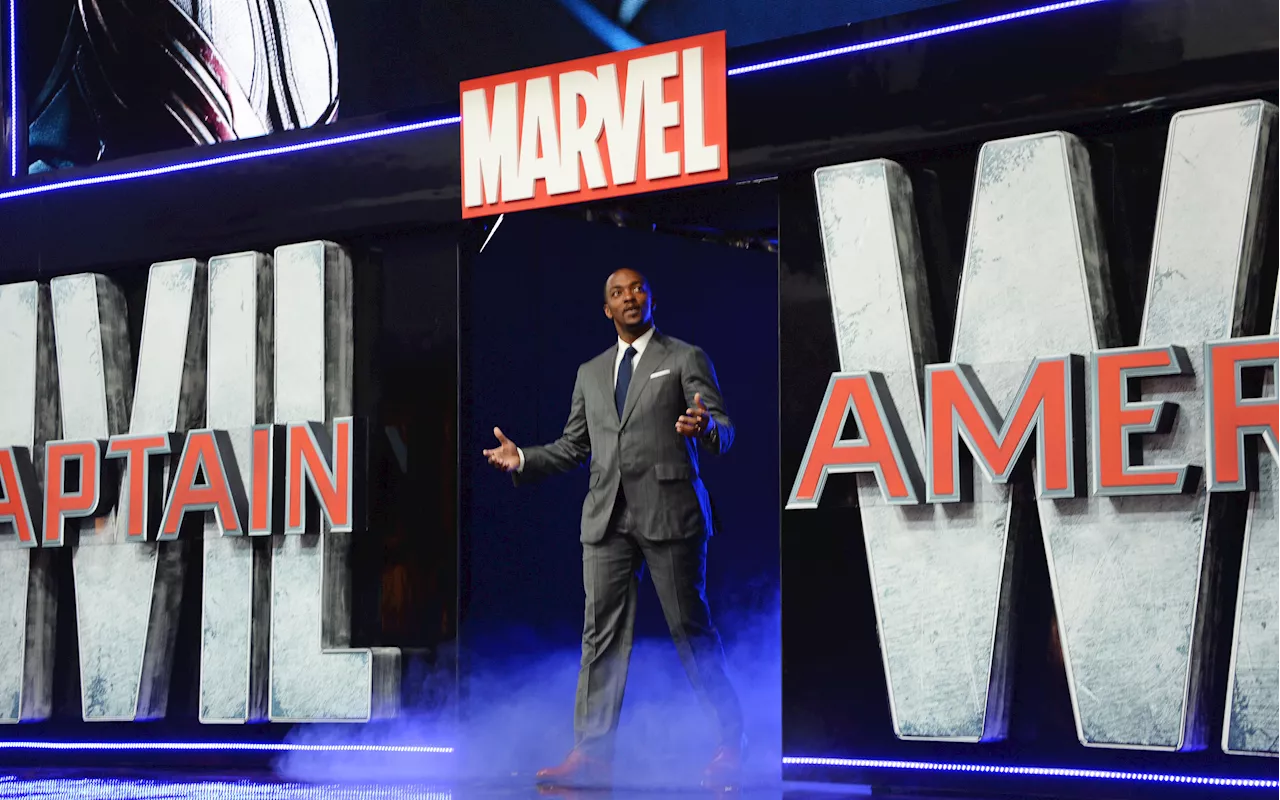 Captain America Actor Faces Backlash for Saying Character Doesn't Represent AmericaAnthony Mackie's comments at a promotional event for 'Captain America: Brave New World' sparked a conservative backlash, with calls for a boycott of the new film.
Captain America Actor Faces Backlash for Saying Character Doesn't Represent AmericaAnthony Mackie's comments at a promotional event for 'Captain America: Brave New World' sparked a conservative backlash, with calls for a boycott of the new film.
Read more »
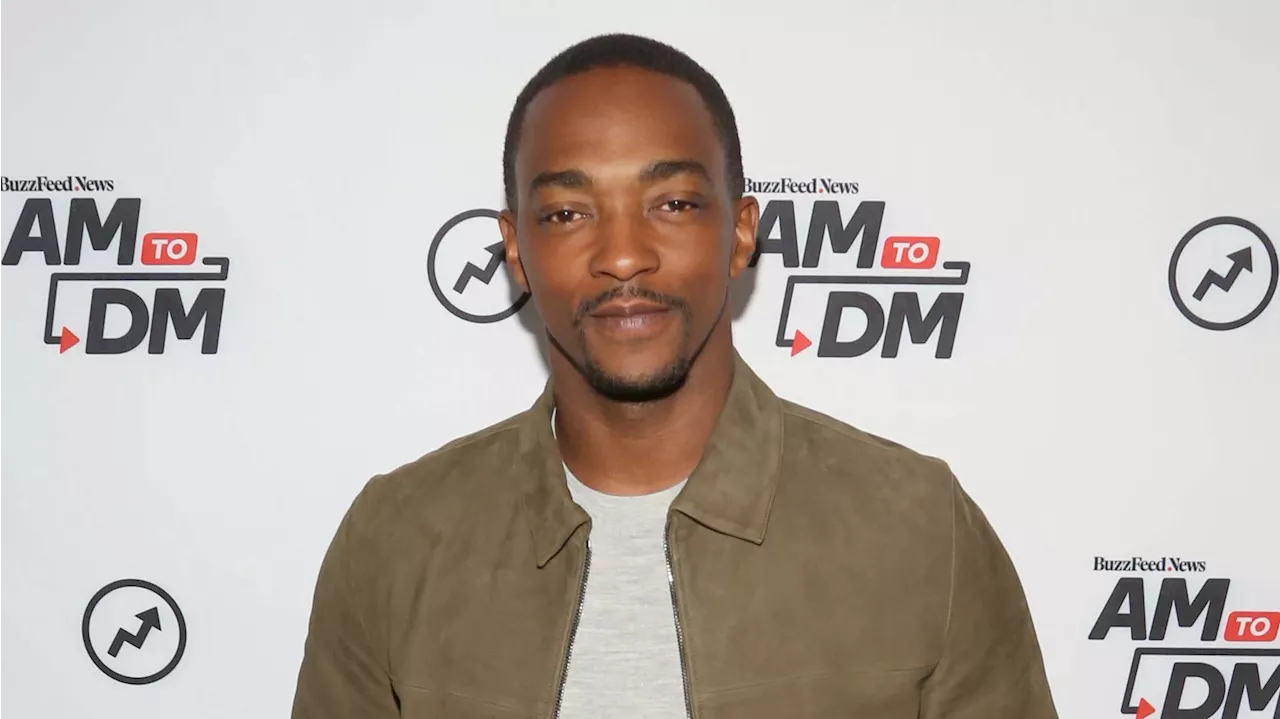 Anthony Mackie Says Captain America Should Not Represent AmericaActor Anthony Mackie, who takes on the mantle of Captain America in the upcoming film 'Captain America: Brave New World,' has stated that the character should not be seen as a representation of America itself. He emphasized that Captain America embodies core values like honor, dignity, and integrity, rather than national identity.
Anthony Mackie Says Captain America Should Not Represent AmericaActor Anthony Mackie, who takes on the mantle of Captain America in the upcoming film 'Captain America: Brave New World,' has stated that the character should not be seen as a representation of America itself. He emphasized that Captain America embodies core values like honor, dignity, and integrity, rather than national identity.
Read more »
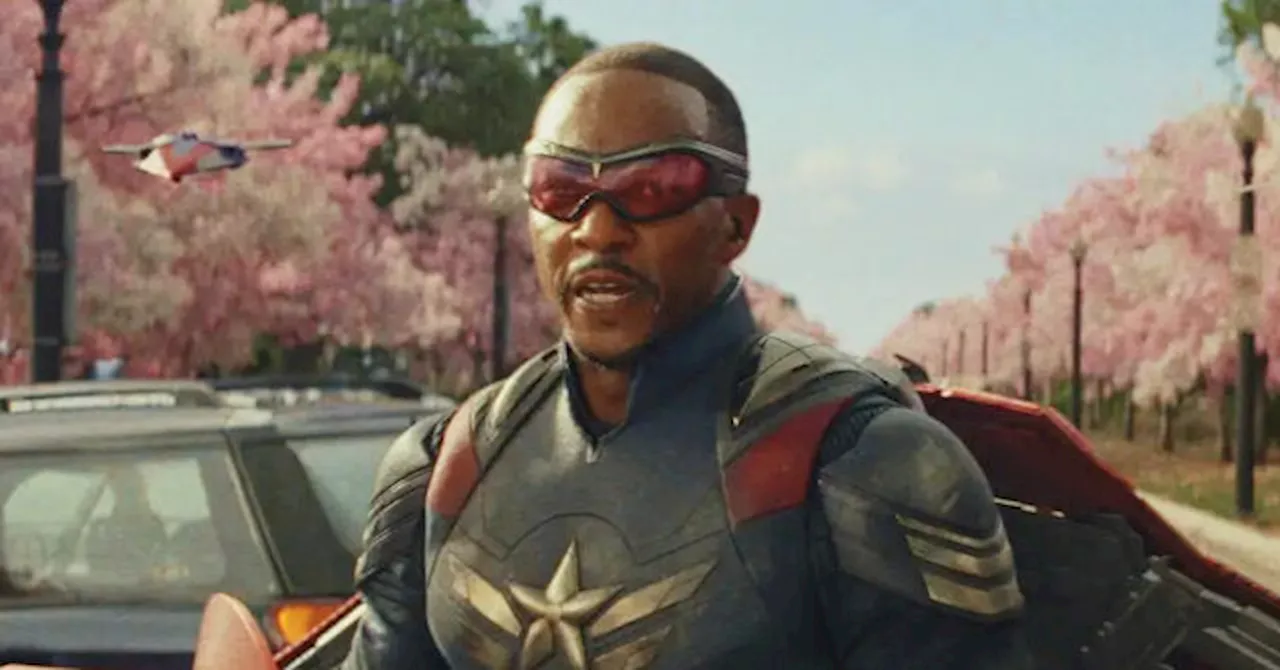 Anthony Mackie Says Captain America Doesn't Represent AmericaIn an interview, Anthony Mackie, the new Captain America, stated that he believes the character should not be seen as representing America. He emphasized Captain America's traits of honor, dignity, and integrity instead. This statement sparked debate about the character's symbolism and the intentions behind Marvel and Disney's portrayal.
Anthony Mackie Says Captain America Doesn't Represent AmericaIn an interview, Anthony Mackie, the new Captain America, stated that he believes the character should not be seen as representing America. He emphasized Captain America's traits of honor, dignity, and integrity instead. This statement sparked debate about the character's symbolism and the intentions behind Marvel and Disney's portrayal.
Read more »
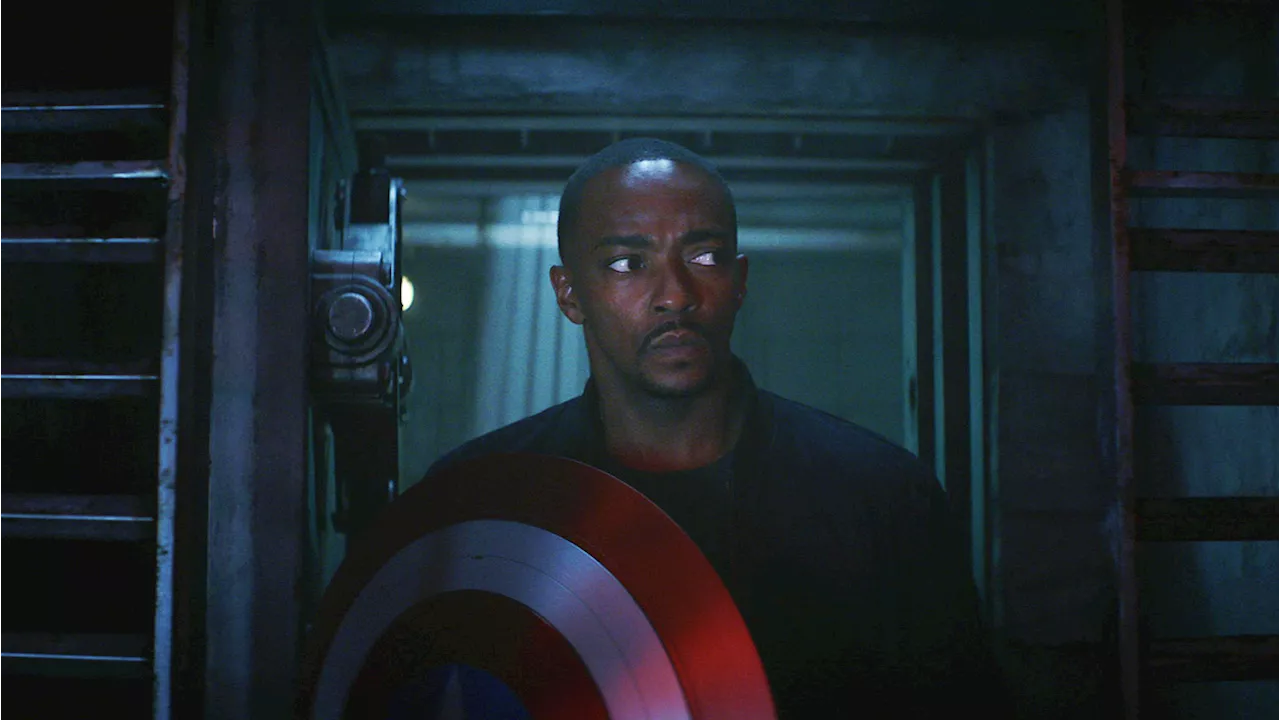 Anthony Mackie: 'Captain America Doesn't Represent America'In a recent interview, Anthony Mackie, who portrays Captain America in the Marvel Cinematic Universe, stated that the superhero symbol shouldn't be tied to a specific nationality. Mackie emphasized that Captain America represents universal qualities like honor, integrity, and trustworthiness, which resonate with people globally.
Anthony Mackie: 'Captain America Doesn't Represent America'In a recent interview, Anthony Mackie, who portrays Captain America in the Marvel Cinematic Universe, stated that the superhero symbol shouldn't be tied to a specific nationality. Mackie emphasized that Captain America represents universal qualities like honor, integrity, and trustworthiness, which resonate with people globally.
Read more »
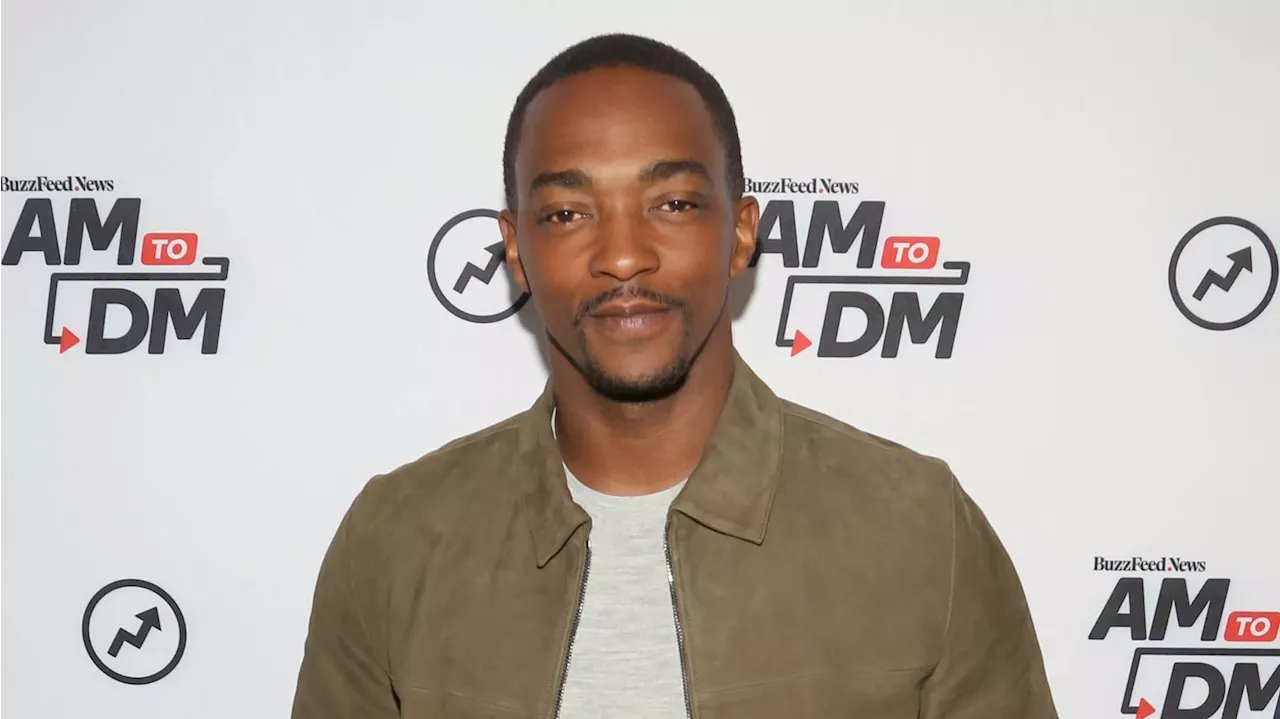 Anthony Mackie Says 'Captain America' Shouldn't 'Represent' AmericaIn a recent interview, Anthony Mackie, who portrays the new Captain America in the upcoming film 'Captain America: Brave New World,' stated that the iconic character should not be seen as representing America. Mackie emphasized that Captain America embodies qualities like honor, dignity, integrity, trustworthiness, and dependability rather than a specific nationality.
Anthony Mackie Says 'Captain America' Shouldn't 'Represent' AmericaIn a recent interview, Anthony Mackie, who portrays the new Captain America in the upcoming film 'Captain America: Brave New World,' stated that the iconic character should not be seen as representing America. Mackie emphasized that Captain America embodies qualities like honor, dignity, integrity, trustworthiness, and dependability rather than a specific nationality.
Read more »
